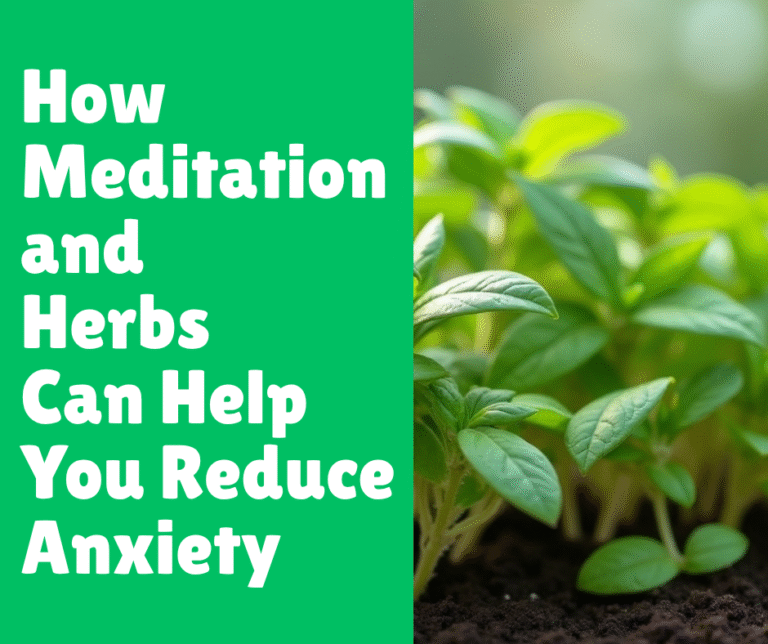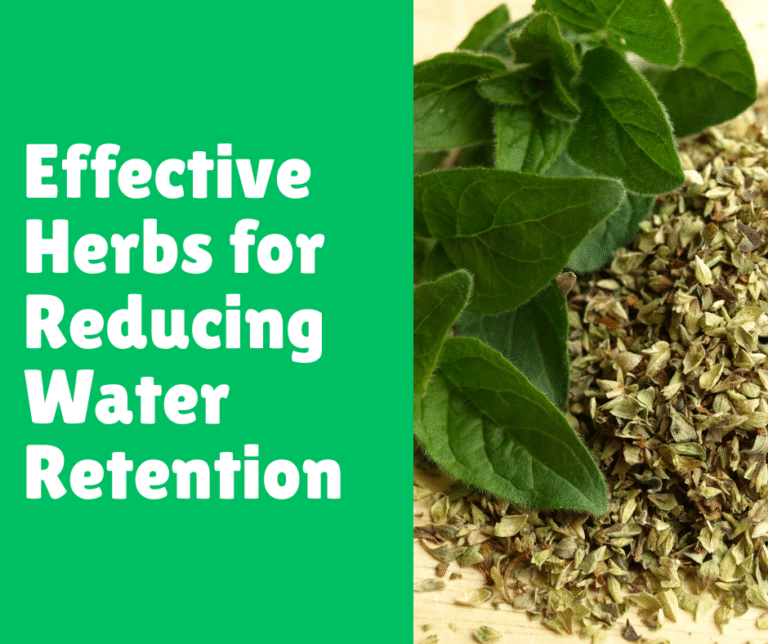Best Herbs for Enhancing Respiratory Function
Post Disclaimer
Content on this site is for educational use only and not a substitute for medical advice. Herbal remedies are based on traditional knowledge and not medical recommendations. Please consult a healthcare professional before trying any herb. We do not assume responsibility for any outcomes or adverse effects resulting from the use of information provided here.
Breathing is something we often take for granted. It’s so automatic that we don’t realize the vital role our respiratory system plays in maintaining our health until something goes wrong.
Whether it’s due to allergies, asthma, or a persistent cough, respiratory issues can be incredibly frustrating.
But what if I told you that nature has provided us with powerful tools to support our lungs and airways?
In this blog post, we’re going to explore some of the best herbs for respiratory health. From soothing coughs to clearing congestion, these herbs can provide significant benefits.
If you’re tired of relying solely on over-the-counter medications, or simply want to explore natural alternatives, this article will guide you through some effective options that have been used for centuries to support lung function.
I’ll share the top herbs that can benefit your respiratory system, how to use them, and what to avoid when incorporating them into your wellness routine. Ready to breathe easier? Let’s dive in!
The Top Herbs for Respiratory Health
When it comes to respiratory health, herbs can be incredibly helpful in promoting healthy lung function, clearing congestion, soothing coughs, and even reducing inflammation. Let’s take a closer look at the herbs that are especially beneficial.
1. Eucalyptus
Eucalyptus is often associated with fresh, clean air. It’s no surprise that this herb is one of the best-known remedies for respiratory health. It contains eucalyptol, a compound that helps to open up the airways, making it easier to breathe. Eucalyptus is often found in steam inhalants and is a staple in many over-the-counter products for congestion and coughing.
How it works:
- Anti-inflammatory properties: Eucalyptus can reduce inflammation in the respiratory tract, making it a great herb for conditions like asthma and bronchitis.
- Expectorant effects: It helps clear mucus and phlegm from the lungs, reducing the feeling of congestion.
How to use it:
- Steam inhalation: Add a few drops of eucalyptus oil to hot water and inhale the steam for 10-15 minutes. This helps clear out mucus and soothes irritated airways.
- Eucalyptus tea: Add eucalyptus leaves to boiling water, and steep for 10 minutes before drinking.
Common mistakes to avoid:
- Using too much oil: Eucalyptus oil is potent and should never be used in excessive amounts. It’s important to dilute it before applying to the skin or using in steam.
2. Peppermint
Peppermint is another herb that’s widely known for its cooling effects. It contains menthol, which has a soothing effect on the respiratory system. Peppermint is often used to relieve symptoms of colds, coughs, and even sinus congestion.
How it works:
- Menthol: This compound has a dual effect—it can help open up the airways and ease the muscles of the respiratory system.
- Antibacterial: Peppermint also has antibacterial properties that can help combat infections, which is especially useful when respiratory issues are caused by bacterial pathogens.
How to use it:
- Peppermint tea: Steep fresh peppermint leaves in hot water for about 5-10 minutes. Drink it to help relieve coughing and congestion.
- Steam inhalation: Like eucalyptus, peppermint oil can be used in steam inhalation. Add a few drops to a bowl of hot water and breathe in the steam.
Common mistakes to avoid:
- Too much menthol: While peppermint is very effective, overusing it—especially in concentrated oil form can cause irritation. Always dilute peppermint oil if applying it to the skin.
3. Thyme
Thyme may be a common herb in your kitchen, but it’s also a powerhouse when it comes to respiratory health. Thyme is known for its antimicrobial, antifungal, and anti-inflammatory properties, making it particularly helpful for respiratory infections.
How it works:
- Antibacterial and antiviral: Thyme can fight off bacteria and viruses, reducing the risk of infections that can lead to respiratory issues.
- Expectorant: Like eucalyptus, thyme helps to expel mucus, making it easier to breathe and clearing up congestion.
How to use it:
- Thyme tea: Steep fresh thyme leaves in hot water for about 10 minutes and drink it to help alleviate coughing and respiratory discomfort.
- Thyme steam: Add thyme to hot water for steam inhalation, which can help loosen mucus and open up the airways.
Common mistakes to avoid:
- Overconsumption: Thyme should be used in moderation. Overuse can cause digestive discomfort.
4. Ginger
Ginger is not just a spicy root that adds flavor to your dishes; it also boasts powerful properties that can support respiratory health. Its anti-inflammatory and antioxidant effects can help ease symptoms of respiratory distress.
How it works:
- Anti-inflammatory: Ginger reduces inflammation in the respiratory system, which can help with conditions like asthma and chronic obstructive pulmonary disease (COPD).
- Expectorant: Ginger helps clear mucus from the lungs, making it easier to breathe.
How to use it:
- Ginger tea: Slice fresh ginger and steep it in boiling water for 10 minutes. Add honey or lemon for additional soothing benefits.
- Fresh ginger: Chew on a small piece of fresh ginger or add it to your food to help reduce inflammation.
Common mistakes to avoid:
- Excessive consumption: While ginger is beneficial, too much can lead to digestive upset. Stick to small amounts in tea or food.
5. Licorice Root
Licorice root has been used for centuries in traditional medicine to treat respiratory problems. It’s known for its soothing properties, which make it an ideal herb for coughs, sore throats, and bronchial conditions.
How it works:
- Anti-inflammatory: Licorice helps reduce inflammation in the airways, easing breathing and coughing.
- Expectorant: It helps loosen and expel mucus, which is useful for respiratory infections.
How to use it:
- Licorice root tea: Steep dried licorice root in hot water for 10-15 minutes.
- Licorice lozenges: You can also find licorice lozenges or syrups, which can be soothing for throat irritation.
Common mistakes to avoid:
- Overuse: Licorice root can be powerful, and excessive use can lead to high blood pressure. Limit use to short periods and avoid if you have high blood pressure.
Table: Overview of Top Herbs for Respiratory Health
| Herb | Benefits | Use & Cautions |
| Eucalyptus | Reduces inflammation, clears mucus | Steam, tea. Dilute; not for young children. |
| Peppermint | Opens airways, fights bacteria | Tea, steam. Dilute; avoid overuse. |
| Thyme | Antimicrobial, expectorant | Tea, steam. Use moderately to prevent digestive upset. |
| Ginger | Reduces inflammation, clears mucus | Tea, fresh in food. Excess may cause digestive issues. |
| Licorice Root | Soothes throat, reduces inflammation | Tea, lozenges. Avoid with high blood pressure. |
How to Safely Incorporate These Herbs into Your Routine
When using herbs to support your respiratory health, it’s important to approach them safely and responsibly. Here are some steps to ensure you’re getting the most benefit:
- Start slow: If you’re new to herbal remedies, start with small doses to see how your body responds. Begin with a cup of tea a day and gradually increase as needed.
- Combine herbs carefully: While it’s beneficial to combine different herbs, be sure to research potential interactions. For example, eucalyptus and peppermint can work well together in steam inhalation but should not be overused.
- Consult a healthcare professional: If you have underlying health conditions or are taking prescription medications, consult a doctor before starting any herbal regimen. Certain herbs may interact with medications.
Common Mistakes to Avoid When Using Herbs for Respiratory Health
- Using herbs as a sole treatment: While herbs can be powerful tools for respiratory health, they shouldn’t replace medical treatment when needed. If you’re dealing with chronic or severe respiratory issues, it’s essential to consult a healthcare provider.
- Overusing herbs: More is not always better. Overconsumption can lead to adverse effects, such as digestive issues, allergic reactions, or even toxicity. Stick to recommended dosages.
- Not preparing herbs properly: Some herbs are most effective when prepared in specific ways, such as tea or steam inhalation. Be sure to follow recommended methods to maximize their benefits.
Conclusion
Herbs can play an important role in maintaining and improving your respiratory health. From easing congestion to reducing inflammation, the right herbs can support your body’s natural ability to breathe easily. Remember to use these herbs safely, and don’t hesitate to consult with a healthcare provider if you have underlying health concerns.
Key Takeaways:
- Eucalyptus, peppermint, thyme, ginger, and licorice root are some of the top herbs for respiratory health.
- These herbs can be used in various forms, including teas, steam inhalation, and lozenges.
- Always start slow, follow recommended dosages, and consult a healthcare professional if needed.
Now that you know about the best herbs for respiratory health, it’s time to try them out! Share your experiences in the comments below, and don’t forget to share this post with friends and family who may benefit from natural remedies for breathing easier.
FAQs
1. Can herbs replace prescription medications for respiratory conditions?
While herbs can be beneficial, they should not replace prescribed medications for serious respiratory conditions like asthma or COPD. Always consult with a healthcare professional for advice.
2. Are there any side effects of using these herbs?
Most of the herbs mentioned are safe when used in moderation. However, overuse or improper preparation can lead to side effects like digestive upset or skin irritation. Always follow the recommended dosages.
3. Can I combine these herbs for better results?
Yes, combining herbs like peppermint and eucalyptus in steam inhalation can be effective for clearing congestion and promoting easier breathing. However, be cautious about mixing too many herbs at once.







